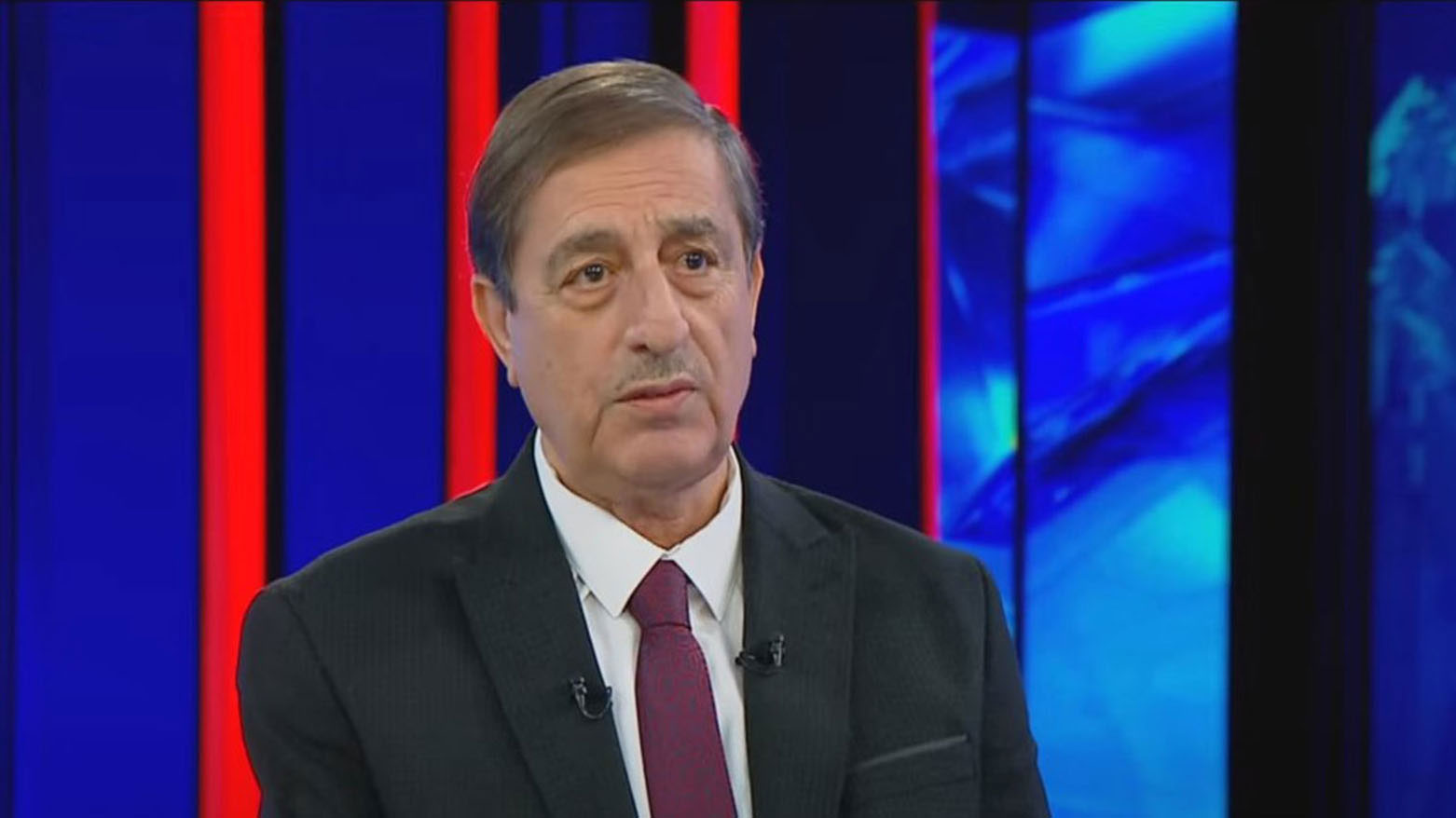KNCS Spokesperson to Kurdistan24: “Kurds Seek Partnership in Syria, Not Partition”
KNCS spokesperson Faisal Youssef says Kurds seek partnership in Syria, not partition, advocating for decentralization and constitutional rights. He emphasizes unity and political solutions over military escalation, aligning with UN Resolution 2254.

ERBIL (Kurdistan24) – In an exclusive interview with Kurdistan24, Faisal Youssef, spokesperson for the Kurdish National Council in Syria (KNCS), emphasized that the Kurdish people do not seek partition but aspire to a decentralized Syria where Kurds can govern themselves and participate as equal partners in rebuilding the country.
Youssef underscored that strengthening Syrian Kurdistan must not come at the expense of the broader Syrian people. “This can happen later when all the people of Syria are united. Today, if a void exists, it must be filled by a unified Kurdish political stance across all of Syria, positioning us as partners in the entirety of Syria, not just in Kobani, Jazira (The Jazira region in Syria is a region located in the east of the country, bounded by the Euphrates and Tigris rivers, and includes Qamishli, Hasakah, Derik and Tal Abyad), and Afrin,” he said.
Recalling a 2020 agreement, Youssef said Kurdish parties had already recognized the need for an authority that would act as the decision-maker for the Kurdish people in political, security, and service-related matters. “For this reason, we advocate for the establishment of a Kurdish authority,” he noted.
He dismissed claims that Kurdish aspirations equate to partition. “To this day, no one, neither from the old guard nor the new, has spoken of partitioning Syria. The discussion of federalism, does this mean partition? No. We are saying we are moving towards the construction of a new state because the centralization of Bashar al-Assad and the Ba’ath party has brought Syria to this point. With a million martyrs and half of Syria displaced, the policy of exclusion against the Kurds became evident.”
The KNCS spokesperson argued that Syria’s future lies in decentralization, ensuring that Kurds have a constitutional framework to govern themselves. “Culturally, politically, and economically, we have never wanted secession. We are saying that we have a distinct identity as a people on our own land within Syria, and this right must be guaranteed in the constitution,” he affirmed.
He cited the statement of Syrian opposition figure Ahmed al-Sharaa, who recently said Kurds should not need to shed blood to obtain their rights because these should be guaranteed in the constitution. Youssef welcomed the sentiment, stressing: “For the first time in Syrian history, we are united. We are ready to participate in the building of Syria and we are ready to solve the Kurdish issue together.”
Youssef insisted that the Kurdish vision does not seek separation, but rather an inclusive Syrian future. “This is not about partition, nor is it about the marginalization of the Kurds again, as the Ba’athists attempted when they wanted to destroy them, leaving them without name or identity,” he said.
Instead, he called for “a new phase within Syria where all the people of Syria can live together.” International actors, he added, also emphasize UN Security Council Resolution 2254, which outlines elections, a new constitution, and guaranteed rights for all Syrian communities.
Youssef stressed that the Kurdish people must stand united administratively, geographically, and politically. “Our vision is that all Kurdish areas must be united so that we can enjoy our rights as guaranteed in the constitution. This is what we envision.”
While acknowledging that different Kurdish groups have varying ideological approaches, he reaffirmed KNCS’s position for self-governance. “We have always advocated for a form of self-governance where our people are united, enjoy their rights, have political autonomy, and determine their own destiny, not to be subservient to anyone.”
The KNCS spokesperson warned against escalating conflict in Syria, underscoring that the solution must be political, not military. “The Syrian people have suffered greatly from war and conflict; there is no need for more war in Syria. Today, Syria is in ruins. Foreign countries and peoples are saying that one of the main things to focus on is that this new administration in Syria should resolve issues through dialogue. But I don’t think the American administration is pursuing this, nor is the international coalition.”
He cautioned that continued threats of war would displace more Syrians. “Every time a threat is made, our people are displaced. This is not a good thing. Threats must be followed by dialogue, a political solution, and the implementation of what has been agreed upon,” he said.
On the matter of elections, Youssef criticized the Damascus administration’s approach. “The head of the Damascus administration has put forward his own policies. He has also appointed the committee that will oversee them. I want to say that this type of election, to what extent can it be a reflection of the people's will? No, it is not an election that will fulfill the will of the people,” he stated.
He insisted that elections must be consistent with Resolution 2254, stressing the need for stability and the return of displaced Syrians before polls are held. “What is being demanded today is a foundation upon which everything can be legally established and implemented on the ground. But we say before that, the problems of the Syrian components must be resolved, and they must all become partners in the Syrian state so that problems no longer remain.”
Youssef warned that without a political understanding, Syria risks sliding into further instability. “If there is no political understanding, we all saw what happened in the coastal areas, what happened in Suwayda? We hope such things do not happen in other places,” he cautioned.
He concluded by stressing that only a political solution based on dialogue, decentralization, and genuine partnership among Syria’s communities can ensure peace. “We see this problem within Syria requires a political understanding so that all people become partners in Syria and owners of Syria, not just one side.”
